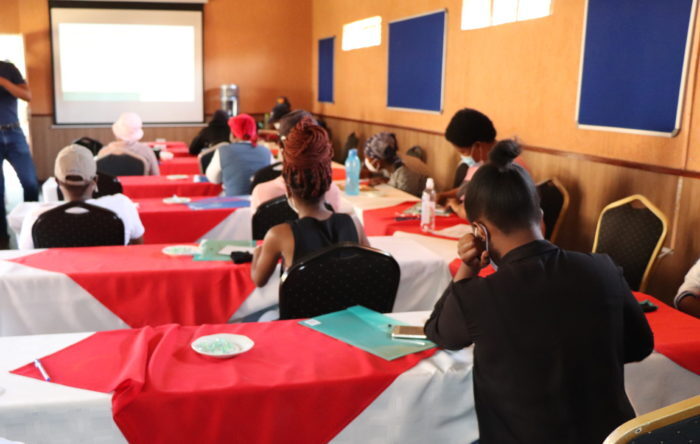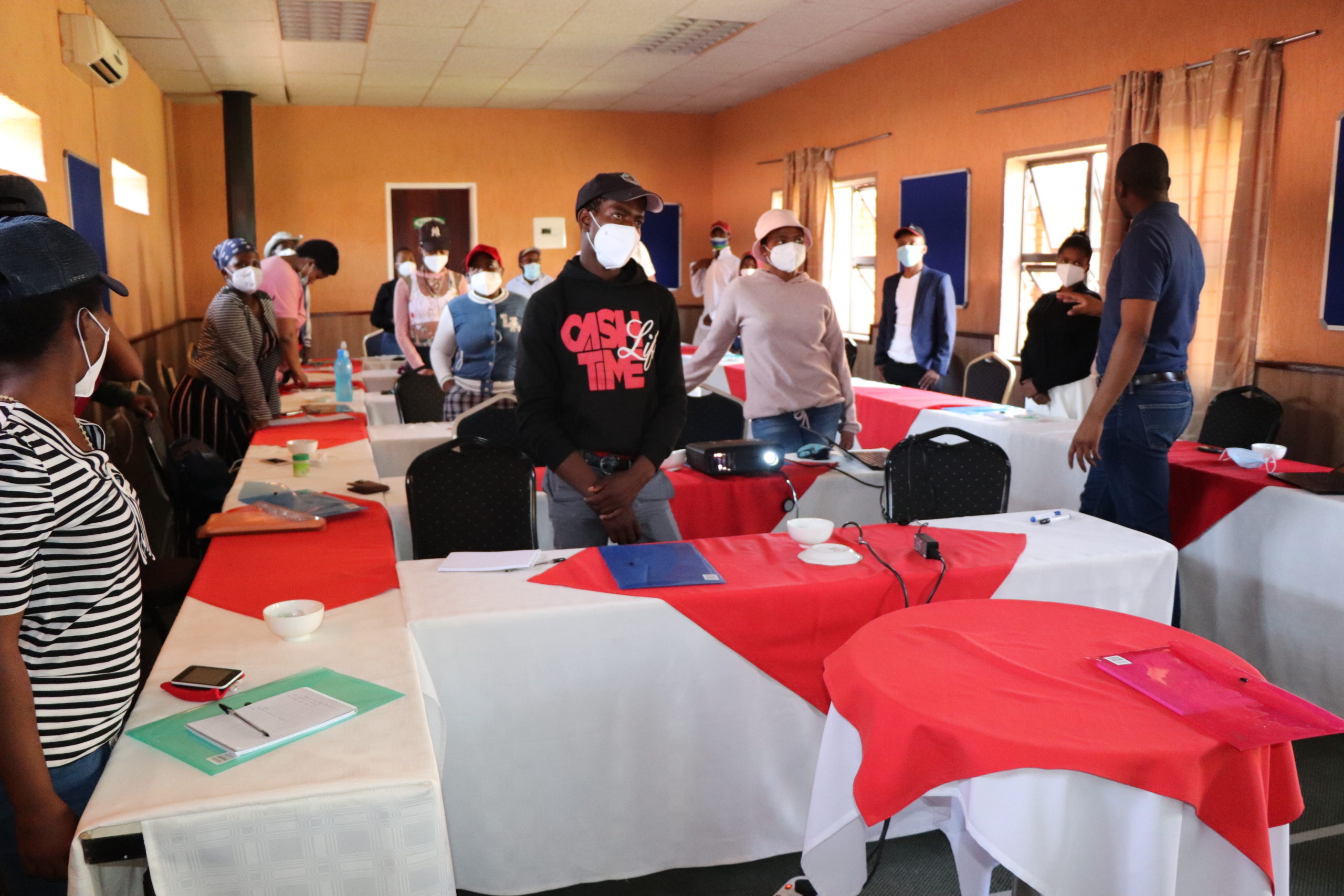With the outbreak of COVID-19 in early 2020, most HIV services were interrupted in Lesotho, including youth-friendly services. Adolescents, like everyone else, learned about social distancing—a term that has disrupted their interactions at special teen clubs for young people living with HIV.
Now, young people visit clinics on weekends, but just for their drug refills. Those with an undetected viral load have been given a three-month supply of drugs to reduce in-person contact with health personnel, to prevent risk to COVID-19 transmission.
 Recently, members of a teen club—supported by the Elizabeth Glaser Pediatric AIDS Foundation (EGPAF)—met, socially distantly, to talk about how the COVID pandemic has affected their HIV treatment.
Recently, members of a teen club—supported by the Elizabeth Glaser Pediatric AIDS Foundation (EGPAF)—met, socially distantly, to talk about how the COVID pandemic has affected their HIV treatment.
One 23-year-old woman who lives with her partner says that COVID-19 has impacted her adherence to treatment. Her partner lost his construction job due to lockdown restrictions and now the young family had no steady income. Food has become a major challenge—not only for the obvious reason of staving off hunger, but she cannot take her antiretroviral (ARV) treatment on an empty stomach.
Another member of the club, a 19-year-old boy who just started taking ARVs in early 2020 (and is, thus ineligible for multi-month dispensing of drugs) says that sometimes when he visits the clinic for his refills, the gate is closed and he ends up missing some days.
One 21-year-old says that he is terrified of catching COVID-19: “My worst nightmare was when I heard that COVID kills people. I don’t know anyone who died from it, but I was so scared.”
Another youth responds with reassurance that only “those who skip their treatment dose or miss appointment, will have high viral load and will be [most] susceptible to opportunistic illnesses.” If people living with HIV take their treatment correctly and have an undetectable viral load, they will have strong immunity to protect them.
The young people all agree that one of the things that they missed most at the clinic is their interactions during peer support group meetings.
“We missed sharing our experiences and entertainment—because when we meet, we also sing and dance,” says one young woman. “During these meetings we forget all our challenges and enjoy time with our peers.”
“Our health care workers are friendly and they always care and support us,” said a young man. Fortunately, health workers and counselors stay in touch over the phone: “During these times of COVID with service disruptions, it is nice to get SMSs [text] reminders from health care workers.”
“Our health care workers are friendly and they always care and support us. During these times of COVID with service disruptions, it is nice to get SMS reminders from health care workers.” Support group participant
Thabelang Rabaholo, the EGPAF Adolescent and Priority Population Advisor, says that despite COVID-19 he cannot take his eye off the vision of achieving an AIDS-free generation. His goal is that 95% of young people living with HIV know their status, that 95% of those who know their status are enrolled on treatment, and that 95% of those on treatment are virally suppressed.
“With or without COVID-19, retention is the greatest challenge among young people,” says Rabaholo. “We are indeed working day and night to improve the case identification and also working harder to improve retention by strengthening follow-up efforts, especially now during the pandemic.”
The strategies that were put on place to follow-up those who missed appointments including introduction ofthe same day tracking of those who missed their appointments. Other strategies are formation of WhatsApp groups facilitated by special youth ambassadors to remind young people living with HIV about their appointments and also discuss their challenges. Adolescents who do not have smart phones are followed up through phone calls.
Adolescent psychologists are now conducting adherence counseling sessions over the phone with individuals with high viral loads. In some facilities peer support group activities continueoutdoorswith a limited number of young peopleat a time while observing social distancing.
Dr. Regina Nakiranda, the EGPAF pediatrician, says that despite their efforts, she and her staff do face challenges. For instance, some of the adolescents do not have data on their phones and cannot participate in WhatsApp chats as a result. In some areas, only one-quarter of the young people can access online sessions on their phones. And some young people do not have easy access to any phone at all. But Dr. Nakiranda perseveres, despite obstacles.
Peer support groups remain the best innovation in management of HIV for this difficult young population. We are trying to adapt to new normal brought by COVID-19. Dr. Regina Nakiranda, EGPAF pediatrician
“Peer support groups remain the best innovation in management of HIV for this difficult young population. We are trying to adapt to new normal brought by COVID-19,”says Dr. Nakiranda.




